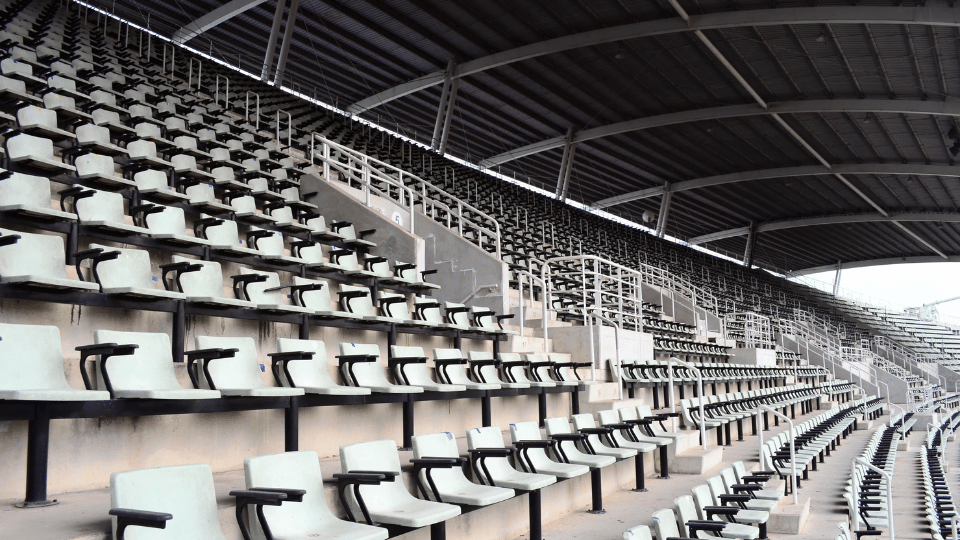Sports facility management plays a crucial role in the smooth operation and success of sports venues, ensuring that athletes, spectators, and staff have a safe and enjoyable experience. From overseeing facility maintenance to managing event logistics, sports facility managers are essential in creating a conducive environment for sports activities. In this comprehensive guide, we will delve into the world of sports facility management, exploring key responsibilities, essential skills, career opportunities, and tips for excelling in this dynamic field.
Responsibilities of a Sports Facility Manager
One of the primary responsibilities of a sports facility manager is to oversee the maintenance of the venue. This includes ensuring that the facilities are in optimal condition for sporting events, practices, and other activities. From managing repairs to coordinating cleaning services, facility maintenance is essential for providing a safe and functional environment.
- Facility Maintenance: One of the primary responsibilities of a sports facility manager is to oversee the maintenance of the venue. This includes ensuring that the facilities are in optimal condition for sporting events, practices, and other activities. From managing repairs to coordinating cleaning services, facility maintenance is essential for providing a safe and functional environment.
- Event Planning and Coordination: Sports facility managers are often involved in planning and coordinating various events held at the venue. This may include sporting competitions, tournaments, training sessions, corporate events, and more. Effective event planning involves coordinating schedules, managing logistics, and ensuring that all aspects of the event run smoothly.
- Budget Management: Managing the budget for a sports facility is a key responsibility for facility managers. This involves allocating funds for maintenance, upgrades, equipment purchases, staffing, and other operational expenses. Effective budget management is essential for optimizing resources and ensuring the financial sustainability of the facility.
- Safety and Security: Ensuring the safety and security of athletes, spectators, and staff is paramount in sports facility management. Facility managers are responsible for implementing safety protocols, emergency preparedness plans, and security measures to create a secure environment for all stakeholders.
- Staff Management: Sports facility managers oversee a team of staff members responsible for various aspects of facility operations. This may include maintenance personnel, event staff, security personnel, and administrative staff. Effective staff management involves hiring, training, scheduling, and supervising employees to ensure efficient operations.
Essential Skills for Sports Facility Managers
To excel in sports facility management, professionals need a diverse set of skills that go beyond basic operations. These skills help managers handle the complexities of running a facility, from overseeing staff and budgets to ensuring smooth day-to-day operations.
- Organizational Skills: Sports facility managers must have strong organizational skills to coordinate various activities, manage resources effectively, and ensure that operations run smoothly.
- Communication Skills: Effective communication is essential in sports facility management to interact with staff, stakeholders, vendors, and the public. Clear and concise communication helps in conveying information, resolving issues, and fostering positive relationships.
- Problem-Solving Abilities: Sports facility managers often encounter challenges that require quick and effective solutions. The ability to think critically, analyze situations, and make informed decisions is crucial in addressing issues that may arise in facility management.
- Leadership Skills: Strong leadership skills are essential for sports facility managers to motivate and guide their team, make strategic decisions, and drive the success of the facility.
- Financial Acumen: Understanding budgeting, financial planning, and resource management is essential for sports facility managers to ensure the financial health and sustainability of the venue.
Career Opportunities in Sports Facility Management
Sports facility management offers a variety of career paths, each focusing on different aspects of running and maintaining venues. From overseeing entire facilities to coordinating specific events, these roles provide opportunities to build a rewarding career in the sports industry.
- Facility Director: In this role, individuals oversee the overall operation of sports facilities, including budget management, staff supervision, event planning, and maintenance.
- Event Coordinator: Event coordinators specialize in planning and executing various events held at sports facilities, ensuring that all logistical aspects are managed efficiently.
- Facility Operations Manager: Operations managers focus on the day-to-day operations of sports facilities, including maintenance, security, and staff management.
- Facility Maintenance Supervisor: Maintenance supervisors are responsible for overseeing the upkeep and repair of sports facilities, ensuring that the venue is well-maintained and safe for use.
- Sports Venue Manager: Venue managers are responsible for managing the overall operation of sports venues, including scheduling events, coordinating staff, and ensuring a positive experience for attendees.
Conclusion
Sports facility management is a vital aspect of the sports industry, combining operational expertise, leadership, and strategic planning to keep venues running efficiently. With the right skills and dedication, professionals in this field can create safe, engaging, and memorable experiences for athletes and spectators alike. For those seeking a dynamic and rewarding career, sports facility management offers diverse opportunities to make a lasting impact on the world of sports.
Key Takeaways:
- Sports facility managers ensure venues operate smoothly, safely, and effectively for athletes, spectators, and staff.
- Core responsibilities include facility maintenance, event coordination, budget oversight, safety management, and staff supervision.
- Essential skills for success include organization, communication, problem-solving, leadership, and financial acumen.
- Career opportunities in this field range from facility directors and operations managers to event coordinators and venue managers.
- Strong management in this area directly impacts the quality, safety, and success of sports events and experiences.
To further enhance your knowledge and skills in sports facility management, consider enrolling in the NYU Fundamentals of Global Sports Management online course and certificate program offered by Yellowbrick. This comprehensive program can provide you with valuable insights and practical knowledge to advance your career in sports facility management and unlock new opportunities in the industry.







